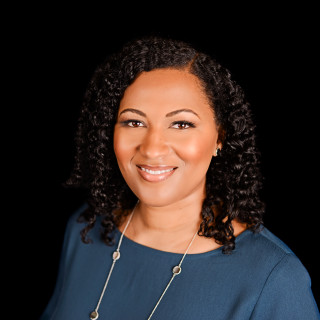
The most difficult transition for me was realizing that although I was among the smartest in high school and college, everyone in medical school was, too. I soon realized in that setting, I was average. I have never had to work so hard at anything in my life leading to just average results. Many times I felt like my classmates were having more fun than me. While they had the time to socialize and enjoy the city our medical school was in, I was studying.
Another stressor, although I did not see it that way at the time, was my relationship. My college boyfriend and I became long-distance when I went to medical school. He actually asked me to withdraw from school and come back home and re-apply to medical school at the same time he planned to start law school so we would be in the same place. It was tough. I would be on an Amtrak over half a day to visit him. Eventually, he moved to where I was but hated it and frequently let me know. That was the beginning of the end of our relationship.
I was still hesitant and somewhat confused on what to choose for my career. At that time, I felt there was less “medicine” in psychiatry, and people wouldn’t consider me to be a “real” physician. Even some family members didn’t understand that a psychiatrist was a physician. I kept thinking of my maternal grandmother who had multiple health issues and was planning on me graduating medical school and being able to take care of her.
When I told her I chose psychiatry, she was offended and felt either I wouldn’t be able to take care of her or that I thought she was “crazy” based on my specialty choice. I also realized how difficult my medical school journey had been and how I needed to make sure I was doing what I loved. I felt I had a talent for psychiatry, and it was a career that many medical students didn’t want. If I enjoyed and had the ability to connect with the patients that no one else wanted to even have a conversation with, I had an obligation to do it. The concern from my family and friends about my choice of specialty reiterated the stigma of mental health in the black community. Psychiatry needed someone who looked like me. I truly believe it is what God wanted me to do.
During intern year, when I was on my medicine rotation, I took care of a woman whose family I connected with. After she was discharged, her son came back to the hospital to give her medical team thank you cards. We exchanged numbers (remember, she was not my patient anymore, and I was finished with internal medicine), started dating, and became a couple. I later became pregnant and had our son during January of my second year. My program director was late in making third-year work schedules because of accommodating my upcoming maternity leave. My co-residents were upset and wondered what was going on. I had to tell them that I was pregnant before I was ready in order to stop the speculation that someone was leaving or kicked out of the program.
Many women residents have been pregnant during residency, but there are some special challenges with being pregnant during a psychiatry residency. I was working with psychotic and manic patients who could potentially have delusional thoughts about pregnancy. Some psychiatric patients in the inpatient and emergency settings could become violent. I was not going to put myself or my baby at risk so I could not participate in de-escalation or restraints.
This led to additional work for my colleagues. Because of the fatigue of my pregnancy, I did the necessary work but did not go above and beyond. So this meant no research, volunteering, or grand rounds. I did well, but flew below the radar at the same time. The demands of being a new mother also didn’t allow for me to do anything that would enhance my curriculum vitae. But I did continue to grow and excel…and easily passed Step 3, my specialty boards, and was able to graduate from residency.
When I first started working at my new job, I was nervous and worried I would not measure up. I was the only physician in my department who was fresh out of residency, and once again I found myself in a situation where I was behind my peers. I soon realized that I had what it took to be an attending and was very good at it. I had confirmation that not quitting was the right decision, and that God placed me in this field.
Since that time I have been vice president of the medical staff, president of the medical staff, and am now Chief of Adult Psychiatry. I have served on the board of my local National Alliance on Mental Illness (NAMI) chapter and on multiple committees of my state’s Psychiatric Physicians Association. I was also honored to be chosen as a fellow of the American Psychiatric Association (APA), an organization of psychiatrists working together to ensure humane care and effective treatment for all persons with mental illness. The strength I developed during my difficult journey to become a physician prepared me for many challenges I would face years later and helped me continue to strive in adversity.
Danielle J. Johnson, MD, FAPA is a board certified psychiatrist who is passionate about perinatal mental health and cultural competence in psychiatry. Find her on Instagram and Twitter at @drdanij.
This post has been edited for length and clarity from its original appearance in The Chronicles of Women In White Coats.






